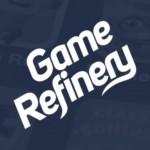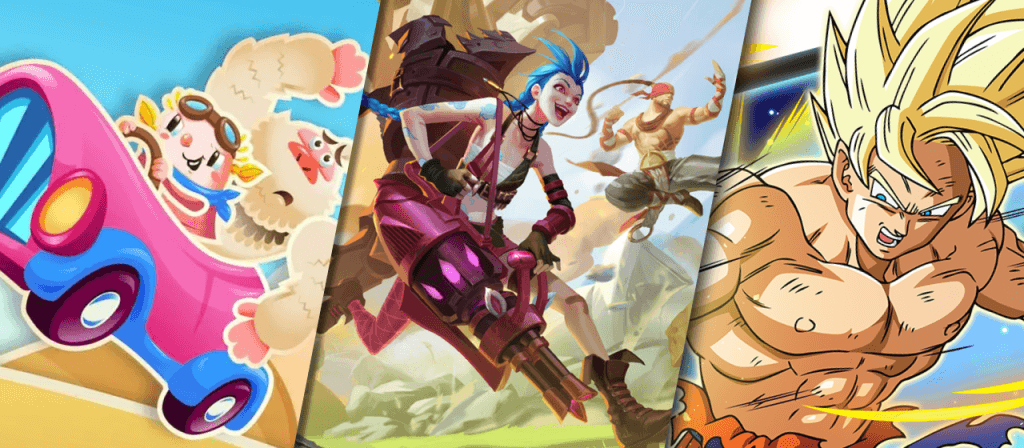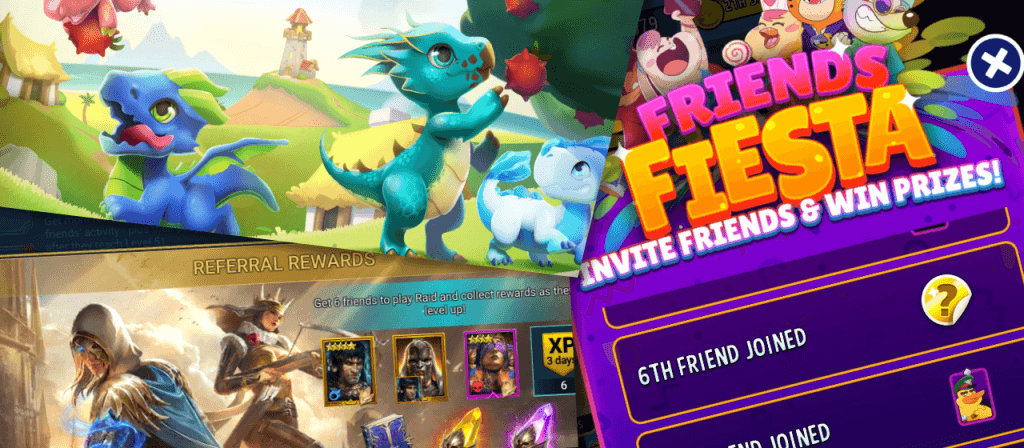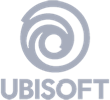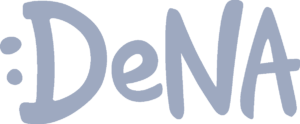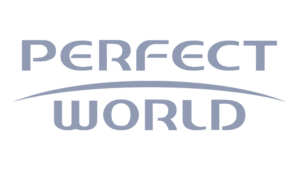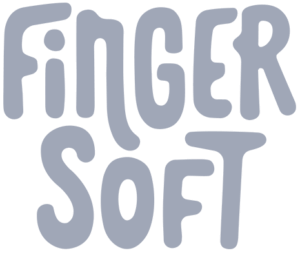In this episode of the Mobile GameDev Playbook, Mike Taramykin, the founder of HypGames, and Chief Game Analyst Teemu Palomäki from GameRefinery, a Liftoff company, join our host Jon Jordan to discuss the celebrity partnerships in mobile games.
![]()
![]() Spotify, BuzzSprout, TuneInRadio, iHeartRadio
Spotify, BuzzSprout, TuneInRadio, iHeartRadio
– If you enjoy the episode, remember to hit subscribe!
We delve into the strategy behind celebrity partnerships and analyze mobile collaboration trends this year while sharing heartwarming anecdotes of working with stars including Tiger Woods, Steve Carell, Amy Poehler, and Tina Fey.
You can also watch the episode on YouTube:
Topics we will cover in this episode:
- Introduction
- Mike Taramykin’s background
- The value of partner deals for your game
- The popularity of music licensing deals has been growing
- Find celebrities with side interests that interact with your game
- Are there genres that are more difficult to match with partner deals?
- It’s a buyer market for celebrity endorsement deals
- Risk of brand mismatches
- Find opportunities where you can measure their impact often
- Mike’s dream collaboration
- “It is less about sticking someone’s name on your product and more about integrating interesting people into your community”
Read transcript
Introduction
[00:00:01] Jon Jordan: Hello, and welcome to the Mobile GameDev Playbook. Thanks for tuning in for another episode. This is a podcast all about what makes a great mobile game, what is and is not working for mobile game designers, and all of the latest trends. I’m your host, Jon Jordan. I’m happy I have two experts with me today, so Teemu Palomäki, a chief game analyst at GameRefinery by Liftoff. How is it going, Teemu?
[00:00:22] Teemu Palomäki: It’s going great. Great to be here.
[00:00:24] Jon: Good. I haven’t had you on for a while, so it’s good to have you back. Not that Teemu isn’t our special guest, but Mike is our special guest today, Mike Taramykin, the CEO of HypGames. How is it going, Mike?
[00:00:37] Mike Taramykin: So far, so good.
[00:00:38] Jon: Oh.
[00:00:40] Mike: We’ll see how it goes.
[00:00:42] Jon: Tough audience. In today’s episode, we have Mike on because we’re going to be talking particularly about celebrity partnerships, why you might be thinking about doing those, and how that fits into the game design, collaboration, and business. Mike has a long history of working with celebrities. Maybe you can tell, but you’re going to go into all that.
Maybe to kick us off, Mike. You had a long career, and HypGames is just one of the other companies you’ve been around, so can you give us a potted history of what you’ve been up to over the last 20 years?
Mike Taramykin’s background
[00:01:19] Mike: I wish it were only 20 years.
[00:01:22] Mike: That’ll be flattering. Now, I started in the gaming industry, as all people do, right out of college as a means to avoid getting a real job. I started a company with a friend of mine from college. It was called Hypnotix. We were based out of New York at the time. I did that for about 12 years because it was just fun, and again it did actual work, but it turns out making games is work, and it is a business.
In 2005, we sold that company to Electronic Arts. I parked up the whole team from New York, moved everybody down to Orlando, Florida, and I was in EA for the next eight years as a vice president general manager running the Tiger Woods PGA Tour business, as well as some free-to-play and mobile EA sports products like Madden mobile, things like that. Then did a stint at Zynga, doing similar work focusing on sports.
Then at a company called FanDuel, which is not in the gaming industry but is near and dear to many sports gamers certainly, within that intersection of fantasy sports and wagering and just general sports entertainment. Then after that, I realised it was fun at the beginning when we called our shots, made our products, saw the opportunities in the market that we wanted to pursue, and went after them, except we were a little bit wiser.
We were certainly a lot older, but I’d like to think we were a little wiser too, and said, “If we did it again, what would we do differently?” That’s where Hyp or HypGames was born. We still haven’t decided what to call ourselves.
[00:03:10] Jon: Yes.
[00:03:10] Mike: That’s our number one question. It’s a conversation starter. It’s like, “How do you pronounce your name?” I’m like, “Well, you tell me.” Here we are, a few years into this venture, and enjoying the opportunities in the market right now.
The value of partner deals for your game
[00:03:28] Jon: A very top-level, when you’re in the sports field, there is a natural celebrity with obviously the people playing the sport. Given that you worked with the likes of Tiger Woods and Madden to the biggest celebrity base sports franchises, I don’t know, should I call you a scrappy starter? I don’t know, but do you feel like some areas you don’t want to get involved with because the Zyngas, the EAs, and the Take-Twos have just sold out? Almost like a negative, do you see that celebrity landscape and go, “We can’t go there; we have to go here?”Is that where you start?
[00:04:11] Mike: I’ll be honest with you, on mobile, no. I think mobile is an incredibly level playing field because it is still very much a service-driven business. In the case of packaged goods in retail traditional console gaming, there are some cost barriers to entry. Still, I think on mobile, there really isn’t. We’re not as concerned or intimidated or worried about competitors that might have certain licences. Still, I will say that the bigger thing we think about when dealing with celebrities or any licensing stuff is the actual economics of the deals themselves.
I do think that not every opportunity is a good one. Some of them might be great in some effects, but not necessarily in others. What we worry about mainly is the financial impact. When you are smaller, you don’t have as much to just throw at an idea to see what happens. We have to be a lot more prudent with what we do. That probably makes us pause more than who else is doing and just to do the economics work for us, and is this going to grow the business or grow the product, or is it just cool to say you hung out with somebody famous?
[00:05:44] Jon: I guess there are two misconceptions there. One is that every celebrity endorsement requires a ton of money. I think the obvious ones do, but that is–
[00:05:54] Mike: That is a safe bet, though.
[00:05:58] Jon: Equally, I’m sure if there are ways of even structuring deals that may be lucrative for both parties, should they play out, but maybe limit your downside if they don’t. At a very high level, how do you start to think about those sorts of things? I guess the other thing is there are so many sports centres. You have a golf game; how many golfers are out there? Many golfers have some sort of recognition that you could be dealing with, so where do you start?
[00:06:28] Mike: It’s not always one-to-one. It’s not like if you’re playing a golf game, you need to browse the universe of golf people, or if you’re doing football, you have to concentrate on football, or as we call it, football. I know you call it football. Maybe I’m presuming, but I’m just judging by the accent. No, I think the way we think about just any kind of a licence, in general, is licences are partnerships.
Basically, this is somebody you will be partnered with in some form. You’re going to expect things from them, they’re going to expect something from you, and so you look at it as like, “Wait, is this somebody that I feel comfortable being in a partnership with for some period of time?”
It’s weird. Just being honest, size matters. There will be bureaucracy if you’re a small organisation trying to partner with a huge organisation. There’s going to be this imbalance of just capabilities. Things will take longer for them. If things don’t go right, they’re bigger than you. There’s this little bit of trepidation you must take from who you are and your partner. It’s just a practical matter.
At the same time, the other thing we think about is the value of our business. I mean, there’s value in any partnership trying to attract new users to your game. There’s also another one, which is trying to engage and re-engage your existing users. One of the things that we think about when we think about games, in general, is this is a service business. It’s not products. We don’t make a game and then just sit back and see what happens.
We build a platform, and then we have to show up daily and run it. I say it’s more like the restaurant business. We build it up, but if we don’t show up every day, if we don’t serve our customers, there is no business. As part of that, when we think about, like, “Well, what’s going to get people excited?” There’s a whole host of things. There are game features. There’s content that you can put in the game, special events, and special guests that you can bring in.
We try to think about celebrities, not as the way you would perhaps in a console, where it’s Tony Hawk skating, or if it’s Tiger Woods, golf, or if it’s whatever genre in football, it’s more about, its ultimate golf, and in our current case, and this week, we’re partnering with such and such to do these things, which helps bring in new users who might be fans of the celebrity, but also the players of our current game are like, “Oh, well, this is something we didn’t do last week. Now, it’s interesting. It’s exciting, and let’s see where this goes.”
Over time, we have this whole suite of interesting things that we do, and we think celebrities are a big part of that. I don’t want to say it’s the only thing, but it’s one of them, and we’ve done a bunch of events over the last two years or so where we have partnered with various celebrities and charities and all stuff like that to just create these special events for our players.
[00:09:42] Jon: That’s good. That breaks it down into more granular elements, so it’s not just so and so’s name on the box, which is the old way of doing it.
[00:09:53] Mike: Well, people still do it. There’s value in putting a name on the game, helping in the search, helping you in the app stores, and helping you with discoverability and stuff like that. There’s value in putting a licence on your product. I don’t want to knock that. For us, though, we take a slightly different approach in that we don’t want a lifelong partner. We don’t want to build a brand on somebody else’s back. We’d rather leverage appearances than just tag our name to somebody, and then they own as much of our business as we do.
The popularity of music licensing deals has been growing
[00:10:37] Jon: Teemu, taking a step back from the specifics of what Mike’s been discussing, from this GameRefinery viewpoint, how do you see this playing out? Are there any trends we should be aware of?
[00:10:49] Teemu: Recently, we’ve seen a lot of music themes in all sorts of games. It’s interesting that– Not just in music games, like Mike said, when making a golf game, you don’t look for a golfer. Garena Free Fire had Cristiano Ronaldo, a soccer player, and then Justin Bieber doing concerts. Now the music theme is just– Even in Cookie Run: Kingdom; they’re currently having like a BTS, the Korean boy band collaborations.
My favourite, the Final Fantasy Brave Exvius, had Katy Perry and Ariana Grande become Final Fantasy characters back in the day. Those were surprising, and we still find ourselves talking about it in the office. Our analyst for the Brave Exvius games still loves having a team consisting of Ariana Grande and Katy Perry and just focusing on those collab characters. I think they can also bring longtime amusement if they’re characters that you can collect. To answer your question, I think music theme, in general, is something we see a lot, even if it’s in a surprising context.
[00:12:35] Jon: I think that’s a good point. The people you mentioned, there are all global levels of celebrity. You get celebrity status. Maybe not for doing particularly anything at all up to that point, or the thing you did, the musician or the actor, a bit becomes irrelevant to what you are then. You just become a brand; that doesn’t matter.
[00:12:57] Mike: Musicians are huge. I think when you look at gaming, community, and celebrity, it’s really just pop culture, right?
[00:13:04] Teemu: Yes.
[00:13:05] Mike: I think, oddly enough, music, movies, they’re the thread that ties everything else together. We’ve had a couple of events that we’ve done in the game, and we brought in a musician who’s known for also being a golfer, like Alice Cooper and Nicko McBrain, the drummer from Iron Maiden, and essentially had a golf event where they played live against our users. They played close to the pin competition, where they got shots. Everybody at home was playing live while we were streaming this audio like an interview straight into the game. It was interesting because, while you’re playing golf, you’re talking about the time that Alice Cooper hung out with Elvis Presley in 1973 and almost shot him. True story. I didn’t know that. When Nicko McBrain got drunk with Ronnie James Dio in Germany, and blah, blah, blah, while we were playing golf. For us, when you think about our audience, which is people who play golf, oddly enough, things that happened in the ’80s and ’90s are relevant to them.
For us, bringing in exciting people you can play with in golf works, but music is the common thread. It’s always like, you just get a musician to talk about what it’s like to be a rockstar. It’s like, “Yes, I will definitely listen to that story.”
Find celebrities with side interests that interact with your game
[00:14:36] Jon: Maybe the interesting bit is, and the cost-effective bit, is to find celebrities with side interests that interact with your game. Hopefully, they won’t charge so much as it is what they’re known for, and actually, they’ll be quite enthusiastic about– I guess Alice Cooper and golf are pretty well-known. Even I know that one. I’m sure everyone has some interesting side hustle.
[00:15:00] Mike: We’ve also worked with PGA Tour players, too, the same thing. The key, for us, at least, with all this is just to make something interesting that surprises people like, “Hey, I definitely want to tune into that.” It’s funny, though, because I keep saying tune in like it’s a show. The truth is, it’s a game, but you think about it the same way. It’s like, how do you get somebody to watch a show? Guest stars.
How do you get somebody to watch anything as you keep it fresh and interesting? We take the same approach to gaming, especially when it’s a service and not a product—your arch-enemy. We always say our arch-enemy is boredom. It’s like when our users get bored; then we’re in trouble. We built a great game; now we have to just keep them interested in it for years.
Are there genres that are more difficult to match with partner deals?
[00:15:53] Jon: The other game you’ve got live is 8 Ball Smash. I’m sure there is a whole subset of obviously snooker players and pool players, but I guess they’re not so internationally renowned. Is that just a game you can’t leverage the same way as you can golf, or is that just my lack of imagination in that scene, and there are loads?
[00:16:15] Mike: I don’t want to say there’s a lack of imagination, Jon. I wouldn’t go that far. I will say, 8 Ball Smash is much earlier in its form. It’s still generally soft-launched. Ultimate Golf is a lot more mature and further along. We know we’ve got a product that works because of the stuff we’re doing in Ultimate Golfer. We know we’ve got a platform and a game that is solid and balanced well.
Now, it’s about, look, how do we draw attention? How do we engage people? That said, we fully intend to leverage these live events with celebrities in every product. Even the stuff we have in development right now, it’s a key part of it.
We build modes designed specifically to let you play against somebody famous. We have a mode in our game called the Boss Battle: essentially, we get a famous person – I don’t want to say famous. We get an interesting person to play around with. We then take that whole session, letting everybody at home play along and see if they can beat him. Then we have an entire pricing structure of one, two, and three stars. A whole bunch of achievements that you can do while you play. The actual event was performed by somebody notable. Then, of course, we shoot a video of it. We put a podcast online: “Here’s what it was like when such and such played.” We interview them throughout the whole process. Then people at home enter those events and depending on how well they do against this notable person the amount of prizes they can earn. That’s worked remarkably well for us. We’ve done that a few times with some celebrities. We’ve done that with organisations like the Arnold Palmer Foundation, where we had boss battles against Arnold Palmer, who is not with us anymore, but still just the idea of a challenge we would create. If you could beat Mr. Palmer, this is the stuff you get. We did have charity a few times, and it’s been tremendously successful both times.
It’s a buyer market for celebrity endorsement deals
[00:18:29] Jon: For me going into the podcast and saying, you get the celebrity, it’s very expensive. You sit their name on the game, and off you go. This is the total antithesis, where you basically think that the celebrity themselves matters for the event. Still, the bottom-up thinking is that you’re going to build that into your production pipeline and your LiveOps pipeline. The celebrity bit, you find those as you go along, sort of thing. You don’t worry too much about them in most cases. You have to have the product line, process, and creativity to think about how to use this thing.
[00:19:06] Mike: Thanks to the internet, there is no shortage of celebrities anymore. Some people literally are only famous from about three days ago, and you’ll never hear of them two days from now. They’re incredibly hot now, and you could leverage them. This is a buyer’s market when you’re trying to think, “Hey, how do we get interesting people, notable people, into our products so that that entertains our users.”
I think it goes anywhere from TikTokers, and YouTubers all the way up to A-list Hollywood celebrities, rock legends, athletes, and the stuff we do. It’s the idea that we have this kind of philosophy for Ultimate Golf, that you just want to play golf with interesting people. That starts with our community. That starts with our players. Our players are interesting people, but then we could take it or make it a bit more interesting. It’s like, “Oh, it’s that guy from that YouTube channel,” or, “Hey, it’s that guy from that band that I like,” or “It’s that girl from that movie that I saw,” or “That athlete who– that that PGA or LPGA player.” I say this because you asked about intimidation from a bigger company like EA or Take-Two in sports licensing. There’s licensing with organizations like the NFL, FIFA, or the NBA. That’s a completely different animal. To me, when you have the centralised licences, if you want to make a football game, you have to deal with the NFL, or else you won’t be viewed as legitimate.
That, to me, goes more towards the kind of products that you make. When we think about sports games, we think one of our first rules is whether we need a big licence to be competitive. If we do, it’s going to be challenging for us. Can we find things where you could be successful in a decentralised licensing environment where, like in Ultimate Golf, we have lots of real golf courses? We do each of those individually, and then we have celebrities, and we do each one of those individually.
We don’t need one central licence in golf to legitimise the whole thing, so we like that. We like the ability to pick and choose the deals that make sense for us and honestly scale them up. We can get more ambitious as the business grows, but it’s picking where you play. If you’re going to go in there and be like, “Hey, we’re going to make an NFL game,” or sorry, “We’re going to make an American football or a European football or soccer game, it’s going to be hard to do without a licence.”
You’re going to have to really need something, but if you’re going to build golf, that’s a lot easier to do. This is part of that whole; we think we got smarter. We can avoid some of these problems early on and then build on some of these smaller opportunities and build them into bigger ones.
Risk of brand mismatches
[00:22:19] Jon: Teemu, just when you were mentioning there’s Cristiano Ronaldo in Free Fire, and obviously he’s a global star, but I do wonder, at that point, do we think we end up in the situation of- not that I would say it’s a terrible licence, it strikes me there’s not necessarily a whole bunch of synergy beyond you’ve got Christian Ronaldo in this battle royal shooting game. Clearly, you wouldn’t imagine Cristiano Ronaldo playing that sort of game. Pretty unlikely, I think.
One of the downsides would be if you had a disconnected celebrity and game, but did you think on one level? Can we see any data? What’s your gut feeling around– because Mike’s been talking about very holistic, nicely controlled things. There still are these big licences, and I don’t know whether Cookie Run and BTS– both South Koreans, I suppose. There is some cultural synergy there, but does that work globally, do you think?
[00:23:23] Teemu: I think this work because people are still doing it. Currently, I think there’s a Neymar Junior collaboration with Mech Arena. That’s also like I didn’t expect a soccer player in Mech Arena. I didn’t expect soccer players in Garena Free fire. Like Mike said earlier that there are celebrities that also play golf. These hardcore mobile gamers who also enjoy soccer might be really into it; it’s a big thing worldwide and depends on your target audience.
Brawl Stars had a collaboration with– I don’t watch much soccer, but it was some French soccer team they collaborated with, and they brought these skins for different characters that they could have the suits for that team. That resonated well with some players, and I think they later did a collaboration like that with Latin American teams, and people enjoyed those as well. Expanding. If you keep giving just the same, where’s the surprise? Where’s the fun?
Find opportunities where you can measure their impact often
[00:25:13] Mike: I think the key to these is finding opportunities where you can measure their impact often. Because there’s a lot of stuff that you don’t measure in likes or views, you have to measure it in some quantifiable business metric that says, “Hey, we did this thing, and this was the impact on the business.” Remember, every time I say business, it sounds dry, but the truth is that business is the game. If your players are more engaged, if your retention goes up, if people buy more stuff, it’s an impact on the business, but you’re also really doing it for your players’ benefit. If your players are happy, your business is great.
The trick with a lot of these collaborations is that you have to know what to measure. You have to know what it is. How are you going to know if this was a good idea or not? We spend a lot of our time dealing with a fairly binary measurement, saying, “We did this, we got this. Was it worth it?” If it was, let’s do more like it. If not, how do we tune it and go forward? We believe this is a huge avenue. Certainly, these days when you look at what’s going on with just basically user acquisition and iOS changes and things like that, people have to get creative. We think this is a fantastic way of doing it, but the key is to get back to measuring the performance of all these endeavours. Otherwise, again, it’s really easy just to spend money.
[00:26:47] Jon: Going back to your– Isn’t the business metric always money? Isn’t it?
[00:26:56] Mike: It doesn’t have to be direct. If it’s an engagement or retention, it will eventually trickle down to money, but it’s not like, “Hey, we’re going to sell items, and if you buy them, then that works.” You do look at it holistically. My bigger point was that it is very important in any licensing deal, but it is certainly important in the stuff that we’re talking about right now, that you have some quantifiable measurement around the value being added. Because if not, you just never know if it’s a good deal. Then it’s just like, this is what they want; do we want to give it to them? Yes. You never know where your points are. A lot of times, it’s funny, is that what I just said sounds incredibly basic, but believe it or not, a lot of times, it’s really hard to measure it. It’s hard, and the quantifying, the quantification, whatever, comes down to somebody’s opinion.
A lot of times when we do these consulting deals, we’d be like, “Well, this is what the licence is worth based on an opinion because we don’t have any data to do it otherwise. When you get into mobile and when you get into these daily data-driven businesses, it’s a lot easier to put checks in place to get hard number performance analysis of each one of these deals, which is one of the many reasons why we love mobile as a business platform.
It also becomes a discipline that you just have to do. You have to look at an opportunity to say, that sounds cool, and you have to do it, you got to measure it, and then you got to decide whether it was successful or not, not just if it was cool or not.
[00:28:47] Jon: Now, I suppose retention is always a much more interesting mechanic because you say it’s not the direct sort of revenue, but if you can keep your retention up, you can, to a degree, I guess, worry about how you monetize that later.
[00:29:01] Mike: No, you’re right. Sorry, I didn’t mean to cut you off there. I was going to say we have users in Ultimate Golf that have played nonstop for two and a half years since we launched. I wake up in the middle of the night worrying that they will get bored one day. It’s been two and a half years. It’s been a great run. We’re coming up on three years, and I worry that we somehow become dull to them. That’s why a lot of this is; when you talk about retention, I don’t mean D1 or D7 or D30; I mean D3 years.
I think all of this stuff is as long as we evolve and as long as we keep things interesting like this; I think that that’s our best shot at retaining people for the really long term.
[00:29:53] Jon: I think that’s really interesting; something we talk about on these podcasts, and you touched upon, is it’s very interesting now with these mobile games where you have these things very easily expect these to last decades. The game they are in 10 years compared to the game they launched is like the 5th or 10th sequel or something.
That’s very interesting where, again, I often say the game is important because people like to play that, but it’s almost like the abstract bit they do. They know they have to do that, but all the stuff around it is actually what keeps them engaged in what’s going on. The game has to be there, but–
[00:30:29] Mike: If you do it right, it’s not even the game. It becomes more about the people who play the game. I’m a big proponent, not a proponent, but a big advocate that we don’t make games; we build communities. We create products that certain people enjoy, and when they start playing them, they meet other people who want the same stuff. Then it’s really; the glue is not us. The glue is the other people that are playing the game.
As long as we keep providing them with a platform and an outlet to hang out with their friends from around the world who they didn’t know before our game came along, and now, they would help them move and drive to the airport, which is a true test of friendship. Once you build those relationships, it’s just continuing to empower us. All this stuff feeds into that, “Hey, is this something that will keep key people around?”
Mike’s dream collaboration
[00:31:31] Jon: We have a question, which may be a little bit. I guess one obvious question is who’s your dream collaboration, but from the discussion we’ve had, that’s looking at it the wrong way because your dream collaboration will be a one-off at that point, then next month, you have to look at another one. Maybe there will be ones where you go– Is that a good way of looking at it? Like, “Oh, it’d be so great if we had X or Y, but–”
[00:31:55] Mike: The funny thing is I’ve already done a bunch that I’m proud of, which is great. I guess there are a few, but to me, all of this actually started a very long time ago. What I like with collaborations is finding people that you think are interesting today that are not quite- they’re not quite as big as you think they’re going to be. I’ve always been keen to find people coming up and partner with them when you both have something to gain from, just from the success of whatever it is you’re doing.
I was going to try to work this into the conversation somehow, but years ago at Hypnotix, we were doing Ultimate Golf, and I wanted Adam Sandler to be the narrator and way out of our league. Then we tried others like Norm McDonald but couldn’t get him either. Then I tried to get somebody that sounded like this funny guy that used to be on Comedy Central named Steve Carell. Rather than finding a sound-alike, we called him on the Daily Show in the US on Comedy Central. He said, “Yes, I’d be happy to do it, but we have to do it this week because I’m moving to California because I got a part in a movie.”
We had Steve Carell do Outlaw Golf and then Outlaw Volleyball for us for an incredibly small amount of money, incredibly, like single thousands. The other key was he couldn’t tell his agent he was doing it because there was not enough money to split with him. Then when Steve got too big for us, we went to the other guy who sounded just like Steve Carell, Steve Colbert, and he did it too, with slightly more money, but still Steve Carell, Steve Colbert before they got a lot bigger.
The best one, probably, and this is all back in the day; we did a game called Deer Avenger, where deer hunted people. That was the whole shtick. It was incredibly successful just based on that concept. The guy we hired as our writer was a writer on the Conan O’Brien Show, and he just had friends who were up-and-coming actors and writers in New York. For $250 each, we got Amy Poehler and Tina Fey to come in and record some stupid dear jokes, and I always tell that story. If you Google it, there’s a Huffington Post article that says, “The first time they ever collaborated was on a game called Deer Avenger 2.” I’m like, yes, it was, and no, I didn’t know either. I knew Amy Poehler because she was on a show called Upright Citizens Brigade. I’m like, “Oh, that’s that girl from that show. That’s pretty cool.” Then every time I watch Parks and Rec, I tell everybody, “Hey, did I tell you about the time that–” To me, that was always interesting; those collaborations of you just find people that you think are funny or interesting or doing cool stuff, and then you say, “I’d love to work together.”
We do that now. It’s like we watch Netflix and see comedians, it’d be like, “We should just reach out and see if we can do something with them,” and just stuff like that. Obviously, I’m a golfer, and I love to work with Tiger Woods. Again, it’s always great to work with people that are at the pinnacle of the sport that you’re doing. I’m a massive Iron Maiden fan, so working with Nico was just– it was just like a personal thing. I’d also like to work with David Murray, the guitarist from that band, to get both of them. That said, there are just so many interesting people that you can collaborate with, and because of the way the business works now– collaboration used to be a whole big thing; you had to get together, you had to be in a place at the same time, whatever it was, you have to do more camps and photoshoots and all this stuff. They were big endeavours.
We did some events last year with Steve Young, a big NFL legend, and Rob Riggle. I’m not sure you guys know who Rob Riggle is. If not, he’s basically in every comedy made in the ’90s and 2000s, such as John O’Hurley from Seinfeld and Patrick Warburton from Seinfeld. We did all of it over Zoom. These days collaboration is like, “Hey, if we can get half an hour together, we could package something up, we could put it in our product.”
John O’Hurley hosted a celebrity golf tournament that we had; he’s the one who brought in Alice Cooper, Riggle, Steve Young, and a whole bunch of others. The whole thing was weird. We would do this celebrity golf head-to-head match where everybody at home was playing. Then John was in his car, and he hit up; the phone was in his cup holder; looking up, I don’t think he was driving. Then the guests were from around the world, and we were here, connecting with thousands of people simultaneously playing golf. That’s cool. That wasn’t possible ten years ago, and it is today, and it’s just getting more and more. My dream celebrities are not so much that there’s somebody I want to work with; there are just cool people that I haven’t worked with yet that we want to incorporate into this.
“It is less about sticking someone’s name on your product and more about integrating interesting people into your community”
[00:37:41] Jon: Cool, good. I think the confusion is just getting the mindset of, don’t worry about the celebrity bit of it, just getting the mindset of people who you think can be part of your product.
[00:37:55] Mike: Yes, you know your players. Golf is different because it’s like, I’m the target market. For me, it’s like if I like it, there’s a good chance a bunch of other people do too, but it’s just that mindset, like you said. It’s like, “Who does your audience gravitate toward?” Just get them involved? Make it interesting for them because you’re trying to hold on to people for decades. You’re trying to get them to consider your product design mobile part of their daily life for the next 5 to 10 years. If that’s the case, you better keep it fresh.
[00:38:33] Teemu: Absolutely.
[00:38:33] Jon: Good. Well, in case of keeping it fresh, I think that’s enough; we don’t want to overstay our welcome, not after your great stories. I don’t think I’ll do anything to cut that. We’ll leave it there. Thank you so much, Mike. That was fascinating.
[00:38:48] Mike: You are welcome. It’s a topic that I think it’s particularly relevant. It has always been licensed, and celebrities have always been part of gaming. I think the game has changed. It is less about sticking someone’s name on your product; it is more about integrating interesting people into your community because it is now really a community, and this is about guest appearances in your community to give everyone who’s playing your product something to talk about and then you do it again later. Then you just keep it fresh and surprising and delighting people as you go, and I think it’s a huge part of the business now.
[00:39:33] Jon: Thanks for that, Mike. Thanks, Teemu as well. I now have my head of vision of all you people at GameRefinery with your Final Fantasy Character Katy Perry and whatever. Sounds good.
Thank you for watching and listening to podcasts; however, you’re consuming it. Thanks for tuning in. Every episode, we’re talking to people building out this incredible mobile free-to-play space, now the largest single part of the gaming industry, as we’ve been discussing, much beyond what we would consider a game.
These are much more about communities that last for years. I hope you’re finding the content interesting. Please subscribe and come back next time.
See you then.
